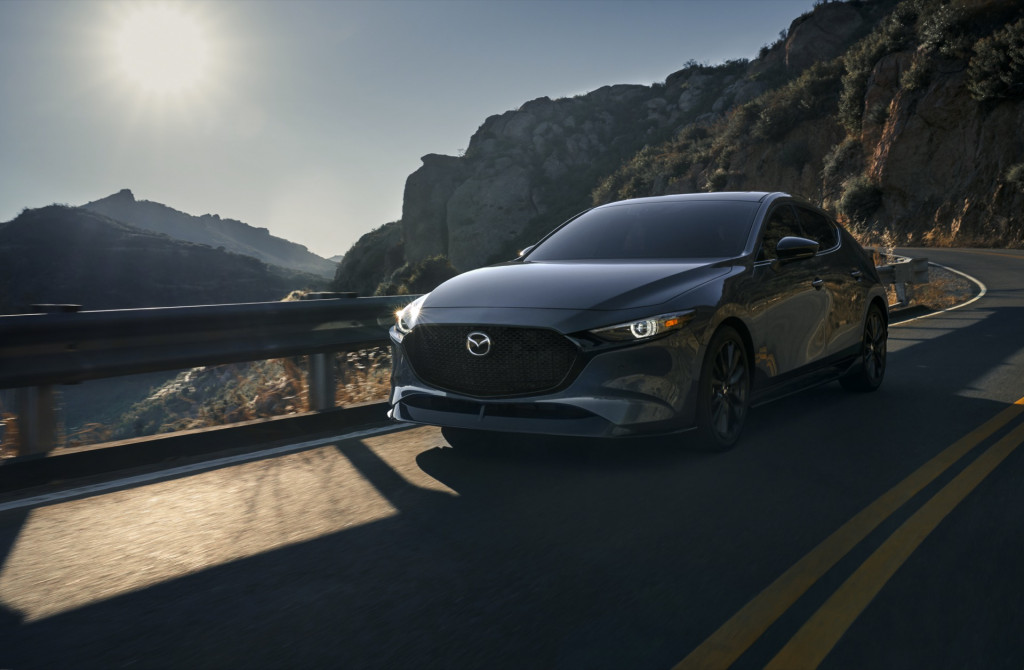The MazdaSpeed performance sub-brand isn't coming back anytime soon, due to a shift in priorities at Mazda, Roadshow reported Monday.
"Right now we have no immediate plans to return the MazdaSpeed brand or line to our product offerings," Mazda Brand Communications Senior Manager Drew Cary told media in question-and-answer session that was attended by Roadshow and Motor Authority. "As we focus more on moving into a more premium space that's more mature and upscale, it's just moving away from that MazdaSpeed branding."
However, sportiness isn't gone at Mazda.
"We are continuing to focus on engaging driving dynamics," Cary continued. "We know that the customers are looking for many different powertrain options that include a high-output powertrain."
The 250-horsepower 2021 Mazda 3 2.5 Turbo is an example of Mazda offering a higher-output powertrain. While it's arguably more powerful than the last MazdaSpeed3 (it has 13 less horsepower but 40 more pound-feet of torque), its suspension is tuned like the rest of the Mazda3 lineup and the car falls into Mazda's recent focus on making its cars more upscale.
MazdaSpeed followed the common performance sub-brand formula of building sportier versions of existing models, including the Protegé, MX-5 Miata, Mazda 3, and Mazda 6. The last MazdaSpeed model sold in the United States was the second-generation MazdaSpeed 3, which was discontinued after the 2013 model year.

2021 Mazda 3 2.5 Turbo
Shifting focus to luxury also opens the door for a different kind of driver's car. Due in 2022, the next-generation Mazda6 is expected to feature rear-wheel drive and an inline-6 engine—not unlike BMW's sports sedans.
Mazda also likely needs to devote more resources to reducing emissions in the context of stricter global standards. It recently launched the all-electric MX-30 crossover for markets outside the U.S., and will also offer a version with a rotary range extender. While the return of a rotary-powered sports car is unlikely, remember that the MX-5 Miata is still going strong.
—Senior Editor Kirk Bell contributed to this report.